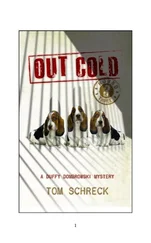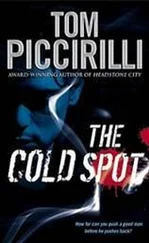As the day wore on, the cases before the brithem became more serious. There were two divorce cases. In the first a woman sought a formal separation from her husband on the grounds that he, had become so fat that he was impotent because he was no longer capable of intercourse. One look at the obesity of the husband made that an easy case to settle. Eochaid also awarded the woman most of the joint property on the grounds that the fat man was also lazy and had clearly contributed little to the income of the household. The second case was more finely balanced. The husband claimed that his wife had brought shame on his honour by flirting with a neighbour, and she counter-claimed that he had done likewise by gossiping to his friends about the intimate details of their own sexual relationship. The pair became increasingly strident until Eochaid cut short their quarrelling by announcing that neither side was at fault, but it was obvious that the marriage was over. He recommended that they separate, each taking back whatever property they had originally brought into it. The woman, however, was to retain the family home as she had children to rear.
'How do you know that your judgements will be obeyed?' I asked Eochaid that evening. 'There is no one to enforce your decisions. Once you leave this place, who will oblige the guilty party to carry out the terms you have laid down?'
'Everything depends on the respect that the people have for the brithem law,' he answered. 'I cannot oblige people to do what I say. But you will have noticed that I try to produce a settlement that both parties can accept. My intention is to restore equilibrium within the community. Even in the extreme case of a murder I would not suggest a death sentence. Executing the murderer will not bring the dead victim back to life. It is surely more sensible that the killer and his kinsfolk pay restitution to the family of the deceased. In that way people will think before committing murder, knowing that their own kinsfolk will have to suffer consequences.'
'And what if the compensation is so severe that the kinsfolk cannot find the money to pay?' I asked.
'That is part of the brithem's proper training,' he replied. 'It is our responsibility to know the face price of every person and the value of every misdeed, and how to vary the compensation according to a myriad of circumstances. A ri, for example, has a greater face price than an aithech, a commoner. So if the ri receives an injury, then the compensation awarded to him is higher. But at the same time if it is the ri who is at fault then he must pay a greater amount of compensation than I would award against an aithech.'
While Eochaid was hearing the cases, more and more people kept arriving at the crannog, until the latecomers were so numerous that they were obliged to camp on the surrounding lands. To add to the congestion the cowherds and shepherds brought in their animals from the outlying pastures in preparation for the forthcoming winter season. Surplus animals were slaughtered, and any meat which was not preserved was being cooked over open fires. A holiday atmosphere developed as the people gorged themselves and drank copious amounts of mead and beer. A number of market stalls appeared. Though the gathering was far smaller than the Althing I had witnessed in Iceland when I first met the Burners, I was struck by the similarity. There was a difference, though: among the Irish I became aware of a certain underlying nervousness. It was the eve of their Samhain, the Festival of the Dead.
On the last day of Eochaid's law court a great crowd gathered at the causeway leading to the crannog. Many of the people were carrying bundles of firewood and there was a strange mixture of jubilation and apprehension. Eochaid emerged from the gate of the crannog wearing a plain white surcoat over his normal tunic. He held a long staff in one hand and his small sickle in the other. Behind him came the chieftains of the allied tuafhs. The little group crossed the causeway and headed off across the fields with the crowd following them. In the distance stood a clump of trees. I had noticed the trees earlier because all the surrounding land had been cleared for farming, but this small copse had been left untouched. It was primeval woodland.
I fell into step behind Eochaid as he entered the wood, which was composed almost entirely of hazel trees. In the middle was a small lake, scarcely more than a pond. Behind us the crowd spread out among the trees and laid down their burdens. A dozen of the chieftain's servants began cutting back the undergrowth at the edge of the pond, clearing a space for Eochaid. He stood there calmly, sickle in hand, watching the preparations. Then, as dusk fell, he moved to the edge of the little lake. Soon it was so dark that it was only just possible to make out the dim shapes of the watching crowd amid the darker shadows of the trees. The whole copse was silent except for the occasional crying of a baby. Eochaid turned towards the lake and began to declaim. He spoke sentence after sentence in a language that I did not understand. His voice rose and fell as if reciting poetry, his words producing a flat, dull echo from the surrounding trees. The entire crowd seemed to be holding their breath as they listened. The water in the pond was inky black and an occasional whisper of breeze ruffled the surface, dissolving the reflected circle of the moon. As the clouds slid by, the moon's image appeared and disappeared randomly.
After about half an hour Eochaid stopped speaking and leaned forward. The white overgown he was wearing made it possible to see his movements clearly, and I glimpsed the glint of the sickle in his right hand. He reached forward and cut a wisp of dried reeds from the edge of the pond. A moment later, by a process I could not detect, a flicker of flame danced in his grasp as the wisp began to burn. As the flames grew brighter, they reflected off the white cloth of his gown and illuminated Eochaid's face so that his eyes seemed in deep shadow. He walked over to a pile of hazel twigs and thrust the burning tinder among them. At once the twigs burst into flame. Within moments the fire was burning so vigorously that orange tongues of flame were twisting and wavering to head height. As the fire took increasing hold, the chieftains of the tuaths stepped forward with their bundles of wood and threw them on the fire. I heard the rapid crackle of blazing timber and sparks began to fly upwards in the hot air currents. Soon there was so much heat radiating from the fire that my face was scorching, and I put up an arm to shield my eyes. There was a low appreciative murmuring from the crowd, and looking across the flames I could see that someone had come forward out of each family group. Each face was lit by the blazing fire and had an expression so intent that it seemed as if the person was enraptured by the swirling of the flames. Several stepped so close to the fire that I thought they would be burned. They all cast small items onto the fire - I could make out a tiny rag doll, a child's shoe, a handful of seeds, a ripe apple. They were offerings from those who sought to have children and bountiful crops in the coming year, or making thanks for their past blessings. The fire burned down quickly. One moment it was a high blaze, then next moment it collapsed on itself in a cascade of sparks. That was when the heads of families each thrust a brand into the flames. As soon as the brand had caught alight, they turned and, gathering up their families, began to walk away, heading back to their homes and tents, each carrying a burning flare. They would guard the brand through the night, and use it to relight their hearth fires, which they had extinguished to mark the passing of summer. The flares being carried out across the countryside made a remarkable spectacle, a sprinkle of bobbing light in the darkness. A hand touched my elbow. I looked round and recognised the steward of one of the tuath chieftains. He nodded for me to follow him, and we began to walk back to the crannog. Halfway there I paused and turned to look at the hazel copse. I could see the glow of the embers, and standing beside them the white-clad figure of Eochaid. He had his back towards us and was looking out at the lake. He had both arms outstretched to the sky, and I fancied that I saw the arcing glint of his sickle as he threw it into the pond.
Читать дальше








